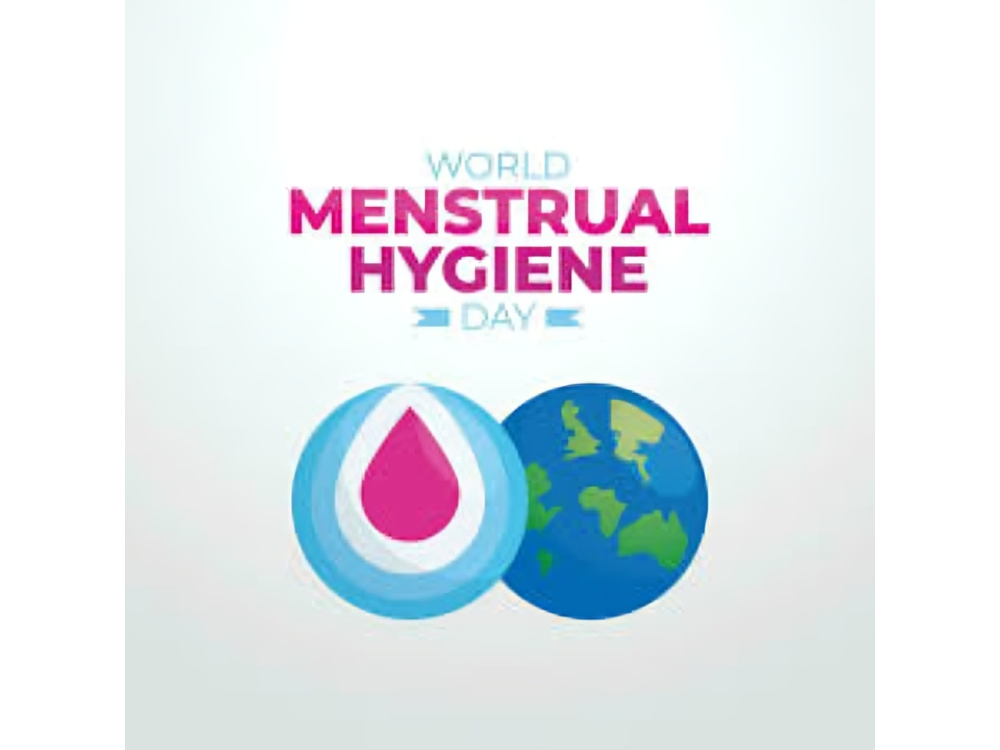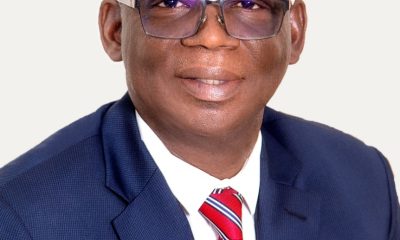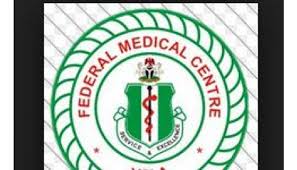Health
Proposed Bill on Compulsory 5-year Service for Doctors Has Good Intention — Minister

The Minister of Health, Dr Osagie Ehanire, says the compulsory
five-year service for graduates in medical and dental fields before being granted full licence
proposed in a bill by the House of Representatives is with good intention.
He made his position known on Friday in an interview with the press in Abuja.
Report says that the title of the amendment bill, sponsored by Rep.
Ganiyu Johnson, reads: “A Bill for anAct to Amend the Medical and Dental Practitioners Act, Cap. M379, Laws of the Federation of Nigeria, 2004.
“It is to mandate any Nigeria-trained Medical or Dental Practitioner to Practice in Nigeria for a minimum of
five years before being granted full licence by the Medical and Dental Council of Nigeria (MDCN).
“It is to make quality health services available to Nigeria; and for Related Matters (HB.2130).”
The bill passed for second reading on April 6.
According to Ehanire, the intention is good because it is talking about curbing brain drain of doctors.
He said “if I can read the mind of Johnson properly, he wants to be able to keep those who have studied
here a bit longer for some time before they can be free to go.
“If you look at the fact that the fees we pay at our universities, definitely they do not make up for the cost
of training.
“If you want to know what it costs to train a doctor, go to a private university and know what they pay for school fees.
“That is a benchmark of what it costs but in our public universities, we don’t pay anything near that.
“So, actually, it means that it is subsidised with taxpayers money because if the government allows you to get training
for about one-tenth or one-twentieth of the cost of the private university, then it means it is subsidised.
“Therefore, I’m sure Ganiyu was thinking about those in that category who should also give back to the country,
having received classy education that is respected outside.
“This is because even the cost of training here is very small compared to school fees paid in foreign countries to
become a doctor. I think this is the angle the representative was looking at the issue from.”
Ehanire added that it may not necessarily have to be by law because the moral understanding is also
clear if one has received quality education and then gives back to the sponsor.
“So, I think maybe the same moral issue people have to look at is whether the bill goes through or not,
but this remains a moral issue”, he said.
Meanwhile, some Diaspora Medical Associations also added their voices to the issue.
In a letter to the Speaker of the House of Representatives, Rep. Femi Gbajabiamila, they said that the bill,
which purportedly seeks a way to address the adverse effects of brain drain, may not be the most effective
intervention to resolve the situation.
The letter was titled: “Re: A Position Statement From Diaspora Medical Associations- Bill Seeking to Restrict
Newly Qualified Medical Doctors and Dentists from Leaving Nigeria.”
The letter was signed by Dr Emeka Ugwu, the President, Nigerian Doctors’ Forum, South Africa, Dr Chinyere Anyaogu, the
President, Association of Nigerian Physicians in the Americas, and Dr Chris Agbo, the President, Medical Association
of Nigerians Across Great Britain.
Dr Nnamdi Ndubuka, the President, Canadian Association of Nigerian
Physicians and Dentists and Dr Al Amin Dahiru, the President, Nigerian Medical Association-Germany, also signed the letter.
According to the letter, the bill will be counterproductive and will not achieve its intended goal.
It stated that “we recognise the problems posed by the exodus of Nigerian medical professionals from our health system,
including, but not limited to decreased access to healthcare services and lack of quality of care.
“Care delivery deserts the inability to adequately enact healthcare and public health policy due to lack of manpower and leadership resource.
“The medical or dental practitioner is the glue that keeps the team functional and the leading force for effective healthcare delivery system.”
The group also said that diaspora healthcare workers would be willing to return to Nigeria if an enabling environment
exists, reversing the trend and helping to solve the problem.
The House of Representatives has passed for second reading, a Medical and Dental Practitioners Act (Amendment) Bill, 2022, which seeks to make it compulsory for graduates in medical and dental fields to render services within Nigeria for five years before being granted full license.
Sponsor of the motion, Ganiyu Johnson (APC/Lagos) said the move was to check the mass exodus of medical professionals from the country.(NAN)
Health
Stakeholders Call for Better Menstrual Hygiene To Boost Health

Stakeholders have stressed the need for increased awareness and improved practices around menstrual hygiene, particularly to support better health outcomes and dignity for girls in underserved communities.
They made the call on Wednesday in Abuja ahead of the 2025 Menstrual Hygiene Day, commemorated globally every May 28 to address inequalities in menstrual health and hygiene.
The event was organised by Tabitha Cumi Foundation (TCF) under its Always Keeping Girls in School (AKGIS) project, with support from Charities Aid Foundation (CAF America).
Mrs Tayo Erinle, Executive Director of TCF, said menstrual hygiene remained a critical yet often overlooked aspect of reproductive health, especially among adolescent girls.
“Many girls live in households where no one provides sanitary pads or pays attention to that part of their lives.
“It happens monthly, and every girl deserves dignity and support,” she said.
Erinle added that more than 1,600 marginalised girls across 32 junior secondary schools in the FCT, Lagos, and Benue states were empowered through puberty education and menstrual hygiene management under the AKGIS project.
She said beneficiaries also received a one-year supply of Always sanitary pads and emergency kits.
“The project has boosted the girls’ confidence.
“Menstruation was once shrouded in secrecy, stigma, and confusion for many. Now, with access to correct information and education, they feel empowered,” she added.
Dr Adedolapo Fasawe, Mandate Secretary for the Health Services and Environment Secretariat, emphasised the importance of educating youths on reproductive health.
Represented by Dr Ruqayya Wamakko, Executive Secretary of the FCT Primary Health Care Board, she called for more sensitisation efforts to encourage young people to use health services in primary health centres.
“We give health talks, visit schools, form school clubs, and teach students how to care for themselves, maintain personal and menstrual hygiene, and stay safe,” she noted.
Mrs Nwakonye Onyirechi, Assistant Chief Investigative Officer in the Women and Children Department of the National Human Rights Commission (NHRC), reiterated the commission’s commitment to protecting the rights of the girl child.
“We go to schools to sensitise girls to their rights and encourage them to speak up when their rights are violated,” she said.
Dr Safiya Tamanuwa, Deputy Director of the Placement and Gender Unit at the Universal Basic Education Commission (UBEC), commended TCF for its support toward improving the health and well-being of schoolgirls.
Highlights of the event included the distribution of sanitary pads and kits, a literary presentation, and expert-led health talks.(NAN)
Health
Group urges Nigerians to embrace healthy habits to prevent diseases

The Society of Lifestyle Medicine of Nigeria (SOLONg) has advised Nigerians to embrace healthy preventive lifestyle habits to prevent the root causes of chronic and lifestyle-related diseases.
The President of SOLONg, Dr Moyosore Makinde, gave the advice in an interview in commemoration of the “Global Lifestyle Medicine Week” on Tuesday in Lagos.
NAN reports that the Global Lifestyle Medicine Week, taking place from May 18 to May 24, 2025, has the theme “Celebrating Healthy Habits: Inspire Change with D.
R.E.A.M.S.”Makinde, also an International Board-certified Lifestyle Medicine Physician, said the week was dedicated to raising awareness about the transformative power of lifestyle medicine in improving health outcomes and reducing the burden of chronic diseases worldwide.
According to her, lifestyle medicine empowers people to live healthier, happier and longer lives.
She explained that the D.R.E.A.M.S. acronym highlighted the six key pillars of lifestyle medicine that guide individuals toward healthier lives namely: Predominantly plant-based Diets, positive Relationships or social connections, Exercise, Avoidance of toxic substances, Mental wellness and stress management, and restorative Sleep.
She said that these pillars had been proven by scientific research to not only manage and prevent chronic diseases like coronary heart disease, diabetes, dementia and Alzheimer’s but also to promote a more sustainable and harmonious relationship with ourselves and with our planet.
Makinde added that it contributed to planetary health and the stability of our ecosystem.
“SOLONg is proud to announce its participation in Global Lifestyle Medicine Week, taking place from May 18 to May 24, 2025.
“Scientific studies, including numerous randomised clinical trials and longitudinal studies, have consistently shown the remarkable benefits of lifestyle interventions in reducing the incidence of chronic conditions.
“Additionally, these healthy habits play a pivotal role in strengthening resilience against infectious diseases.
“The ongoing impact of several pandemics has underscored the importance of adopting healthy behaviours, as poor lifestyle choices have been associated with worse disease severity and slower recovery times,” she said.
Contributing, the General Secretary of SOLONg, Dr Chika Anozie, said that Global Lifestyle Medicine Week aimed to foster a community of like-minded individuals and healthcare professionals committed to lifestyle medicine.
Anozie, also a Family Physician, said that SOLONg would organise various activities to mark the week, including a Webinars and educational workshops on lifestyle medicine topics.
She added that there would be courtesy visits and community outreach programmes promoting healthy habits, as well as social media campaigns sharing lifestyle medicine tips and resources.
“As we observe Global Lifestyle Medicine Week, it is clear that the need for Lifestyle Medicine is greater than ever.
“This is a clarion call for the government to create policies that promote healthy lifestyle practices while restricting behaviours that contribute to disease.
“We urge medical institutions to prioritise the accreditation of Lifestyle Medicine programs at both undergraduate and postgraduate levels.
“It is equally important that health professionals receive the proper training to effectively communicate these life-saving messages to the public.
“The Society encourages individuals to embrace the principles of healthy living, which are not only lifechanging but also long-lasting,” she said.(NAN)
Health
NAFDAC Clarifies Sachet Alcohol Ban Timeline

The National Agency for Food and Drug Administration and Control (NAFDAC) has clarified its stance regarding the nationwide ban on sachet alcohol.
Mr Kenneth Azikiwe, Director of the FCT Directorate of the agency, in an interview on Monday in Abuja that the temporary lifting of the ban was only valid until Dec.
31, 2025.He emphasised that the recent ministerial lifting of the ban was not permanent and urged the public to disregard misinformation suggesting that the government had permanently lifted the restriction.
“There is a ministerial lifting on the ban of sachet alcohol, but it is only temporary and will be reviewed by Dec. 31, 2025.
“After this date, the full enforcement of the ban will commence.
“The minister granted this temporary relief to allow manufacturers and regulators time to collaborate and ensure a more structured and effective implementation of the ban,” Azikiwe stated.”
He highlighted NAFDAC’s ongoing efforts to sensitise the public across the country, noting that awareness campaigns had reached every state.
“We have sensitised distributors, and we’ve emphasised that alcohol should not be sold to individuals under the age of 18, which is also clearly indicated on product labels,” he added.
Azikiwe also commended the Distillers and Beverages Association of Nigeria (DIBAN) for supporting the awareness drive.
He reassured the public that NAFDAC remained fully committed to regulating alcohol consumption and reiterated that sachet alcohol products containing less than 200 milliliters would be phased out after Dec. 2025.(NAN)


























